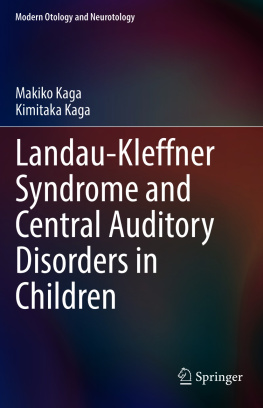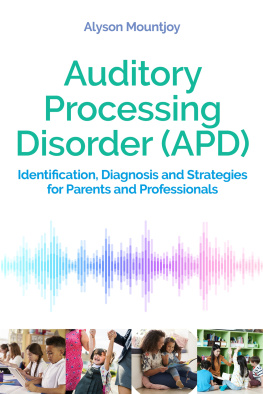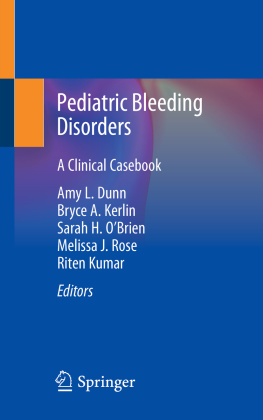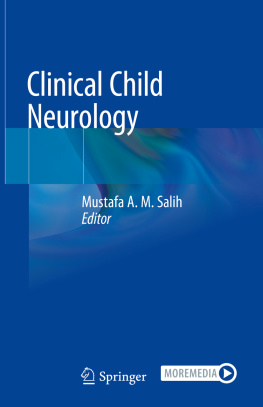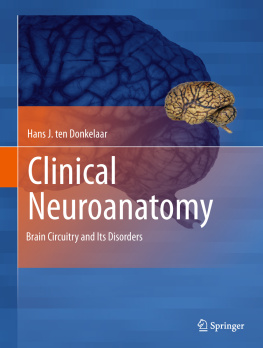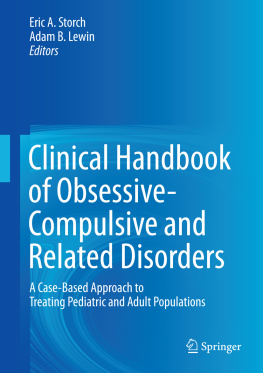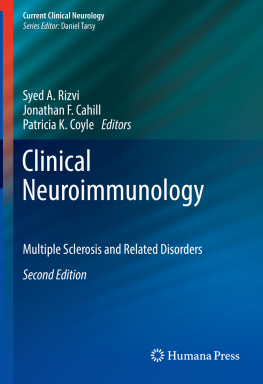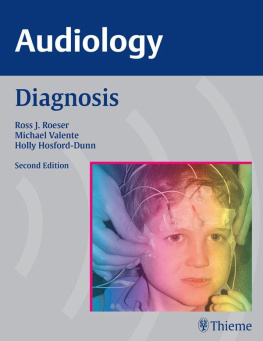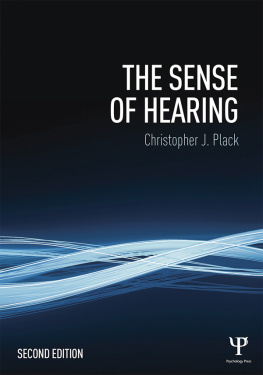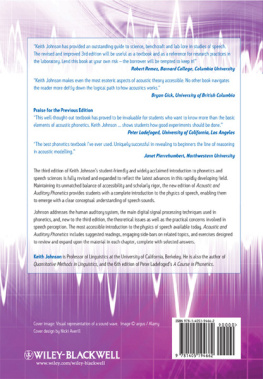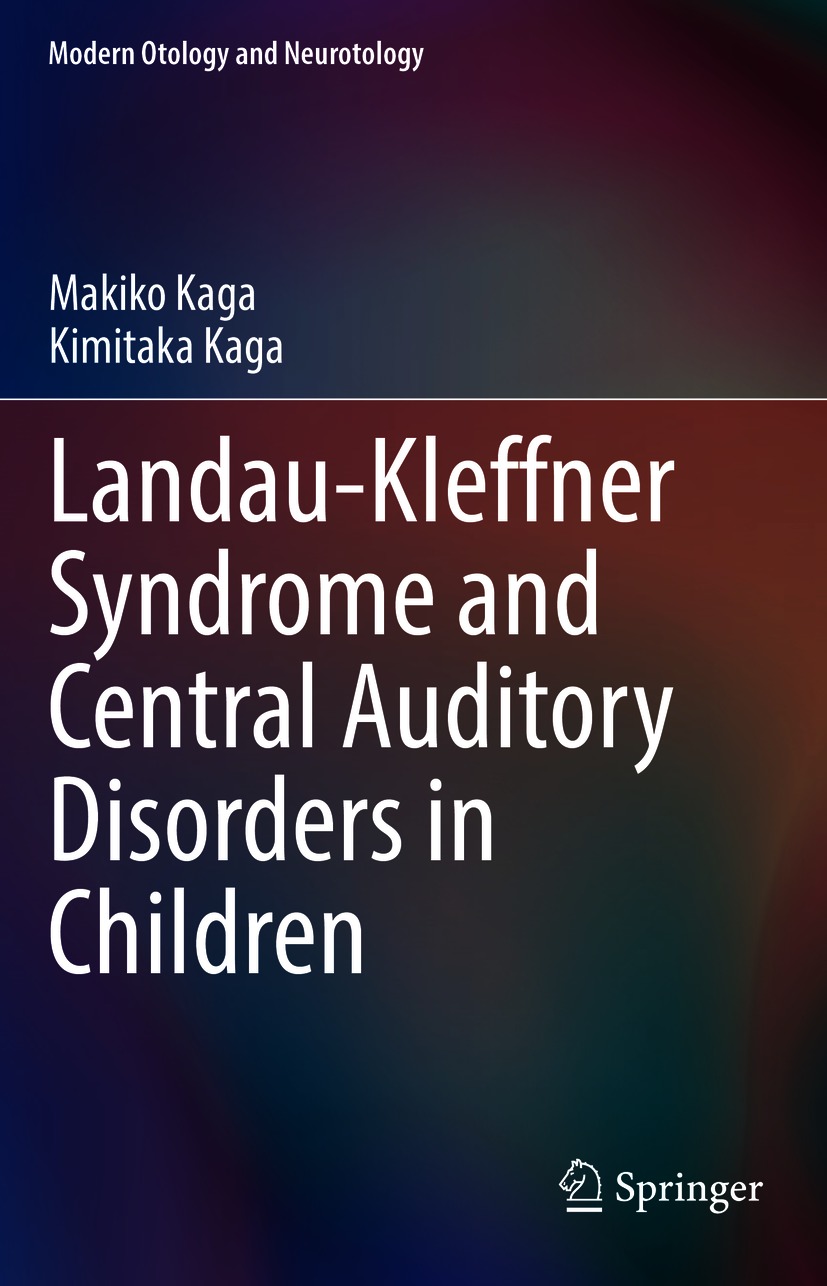Makiko Kaga
Tokyo Metropolitan Tobu Medical Center for Children with Developmental Disabilities, Tokyo, Japan
National Institute of Mental Health, National Center of Neurology and Psychiatry, Tokyo, Japan
Kimitaka Kaga
National Institute of Sensory Organ National Tokyo Medical Center, Tokyo, Japan
Kamio Memorial Hospital, Tokyo, Japan
ISSN 2567-2169 e-ISSN 2567-2525
Modern Otology and Neurotology
ISBN 978-981-10-1478-9 e-ISBN 978-981-10-1479-6
https://doi.org/10.1007/978-981-10-1479-6
Springer Science+Business Media Singapore 2021
This work is subject to copyright. All rights are reserved by the Publisher, whether the whole or part of the material is concerned, specifically the rights of translation, reprinting, reuse of illustrations, recitation, broadcasting, reproduction on microfilms or in any other physical way, and transmission or information storage and retrieval, electronic adaptation, computer software, or by similar or dissimilar methodology now known or hereafter developed.
The use of general descriptive names, registered names, trademarks, service marks, etc. in this publication does not imply, even in the absence of a specific statement, that such names are exempt from the relevant protective laws and regulations and therefore free for general use.
The publisher, the authors and the editors are safe to assume that the advice and information in this book are believed to be true and accurate at the date of publication. Neither the publisher nor the authors or the editors give a warranty, expressed or implied, with respect to the material contained herein or for any errors or omissions that may have been made. The publisher remains neutral with regard to jurisdictional claims in published maps and institutional affiliations.
This Springer imprint is published by the registered company Springer Nature Singapore Pte Ltd.
The registered company address is: 152 Beach Road, #21-01/04 Gateway East, Singapore 189721, Singapore
Preface
The author has long been fascinated by the mysterious symptoms of LandauKleffner syndrome (LKS). LKS was named in honor of Drs. William Landau and Frank Kleffner. It was a chance encounter with patients with LKS who were the patients of the late Dr. Masaki Suzuki (19301976). Dr. Suzuki was a child neurologist who was interested in neuropsychology and neuropsychiatry in children. He was one of my mentors in my professional life as a child neurologist. However, he was my teacher only for a year and a half, and he passed away all of a sudden at 46 years of age.
When I first met children with LKS, their diagnosis was acquired aphasia in children with markedly epileptic abnormal electroencephalogram. Their sequential symptoms of aphasia, auditory agnosia, and word deafness without apparent organic brain lesions simply surprised me. Usually these symptoms of higher cortical dysfunction cannot occur with responsible brain lesions. During their long-term follow-up, most patients fully recovered without apparent handicaps. They spend their lives as the typically developed children/adults. I was again surprised that almost all patients lost their musical ability and such a state continued thereafter even after they became free of auditory verbal symptoms. Moreover, there are some children with incomplete or scarce recovery. I have known and have been impressed by a lady who had a severe sequela of auditory agnosia for more than 50 years. Her efforts to overcome and at the same time to live together with her handicaps is worthy of special mention.
In this book, I tried to show the clinical features of LKS mainly from the viewpoint of auditory agnosia which is the central auditory dysfunction.
Thus, the book is for auditory agnosia and related central auditory dysfunction in children. Part I of this book is just for LKS which is a disease of functional abnormality and was written by Makiko Kaga.
Part II of this book is for the diseases which can manifest central auditory dysfunction due to organic brain lesions. This part was divided up between Makiko Kaga and Kimitaka Kaga. Kimitaka Kaga is an otorhinolaryngologist and is deeply engaged in both peripheral and central auditory dysfunctions in all generations.
We plan to put this book to help diagnosing and treating the rare condition of auditory agnosia in children induced by LKS and other diseases which may develop central auditory dysfunction and are difficult to diagnose. These patients need to be treated and supported for a rather long time.
I appreciate Masaki Suzuki, MD, PhD (19301976); Isabelle Rapin, MD (19272017); Thiery Deonna, MD; Yoshisato Tanaka, MD, PhD; and Masataka Arima, MD, PhD, for inspiring me about LKS, language development, hearing impairment, neurodevelopmental disorders, and childhood higher cortical functions.
I acknowledge Drs. Osamu Kanazawa, MD, PhD; Shunichi Kato, MD, PhD; Koji Kato, MD, PhD; Hirokazu Oguni, MD, PhD; Norio Sakuragawa, MD, PhD; Masayuki Shimohira, MD, PhD; and Nobuyuki Shimozawa, MD, PhD, for referring patients.
We thank our colleagues, Masumi Inagaki, MD, PhD; Atsuko Gunji, PhD; Kotoe Sakihara, PhD; Wakana Furushima, MD, PhD; Seiko Suzuki, MD, PhD; Toshihiro Horiguchi, PhD; Yoshimi S Kaga, MD, PhD; Takayuki Hatori, MD, PhD; Shingo Oana, MD, PhD; Kyoko Sasaki MD; Naomi Kokubo, PhD; Tatsuyuki Ohto, MD, PhD; Miho Nakamura, MD, PhD; Tatsuya Koeda, MD, PhD; Kenji Sugai, MD, PhD; Takashi Saito, MD, PhD; Hitomi Noguchi, MD, PhD; Mitsuko Shindo, PhD; Masako Nakamura, MS; Reiko Ohta, BS; and Kayoko Sekiguchi, BS.
This book contains the results of Research Grant of Encouragement of Scientists in 2009 from the Ministry of Health, Labor and Welfare, Japan, Present a real picture of LandauKleffner syndrome (Chief scientist: Makiko Kaga).
In this research project, we thank the Directors of Pediatrics in all Japanese Hospitals which had pediatric departments, councilors of the Japanese Society of Child Neurology, and councilors of the Japan Epilepsy Society for cooperating with the nationwide survey of LandauKleffner syndrome.

